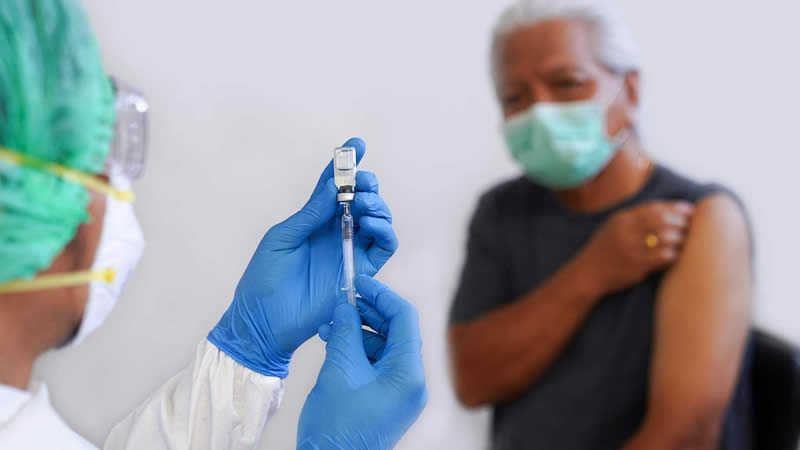Since the onset of the COVID-19 pandemic in 2020, researchers worked to create a vaccine that would provide a safeguard against the coronavirus. According to the Centers for Disease Control (CDC), the COVID-19 vaccine provides a safe way to create antibodies against the coronavirus.
The COVID-19 vaccine can lower the risk of getting the virus, spreading the virus, being admitted to the hospital, and can prevent serious illness and death in all populations.
According to the Food and Drug Administration (FDA), the Pfizer-BioNTech COVID-19 vaccine became available under emergency use authorization (EUA) for individuals 16 years and older on December 11, 2020. On May 10, 2021, the EUA was expanded to include individuals aged 12 to 15 years old.
Until recently, the COVID-19 vaccine was only administered to prevent the coronavirus. However, a 2022 case report in the Journal of Clinical Immunology, has revealed that the COVID-19 vaccine may be useful for more than just preventing the coronavirus.
COVID-19 vaccine found to successfully treat coronavirus
Ian Lester, a 37-year old man with Wiskott-Aldrich syndrome, a rare condition that decreases the body’s ability to fight infections, was given the COVID-19 vaccine as a form of treatment after testing positive for COVID-19 for more than seven months, according to Cardiff University.
Lester reported persistent symptoms of chest tightness, fatigue, dyspnea, and poor concentration after testing positive for the virus (via WebMD).
Lester stated, “I began to feel like I was a prisoner in my own home. The days blurred into months.” Clinicians from the Immunodeficiency Centre for Wales administered two doses of the Pfizer vaccine to Lester while scientists from Cardiff University monitored his immune system. After 72 hours, Lester received his first negative COVID-19 test, according to Cardiff University.
Dr. Mark Ponsford, a scientist from Cardiff University’s School of Medicine, said in a statement, “It was a pretty astonishing moment. Importantly, the vaccine was well tolerated by the patient and successfully induced a strong antibody and T-cell response.” The outcome suggests that the vaccine was able to give Lester’s immune system the boost it needed to clear the virus.
Researchers are now preparing to reproduce the success of the treatment in other patients who are immunocompromised. Ponsford said, “While genetic causes of immunodeficiency are rare, there are many more individuals whose immune system has been suppressed because of their medical conditions and treatments” (per Cardiff University).



